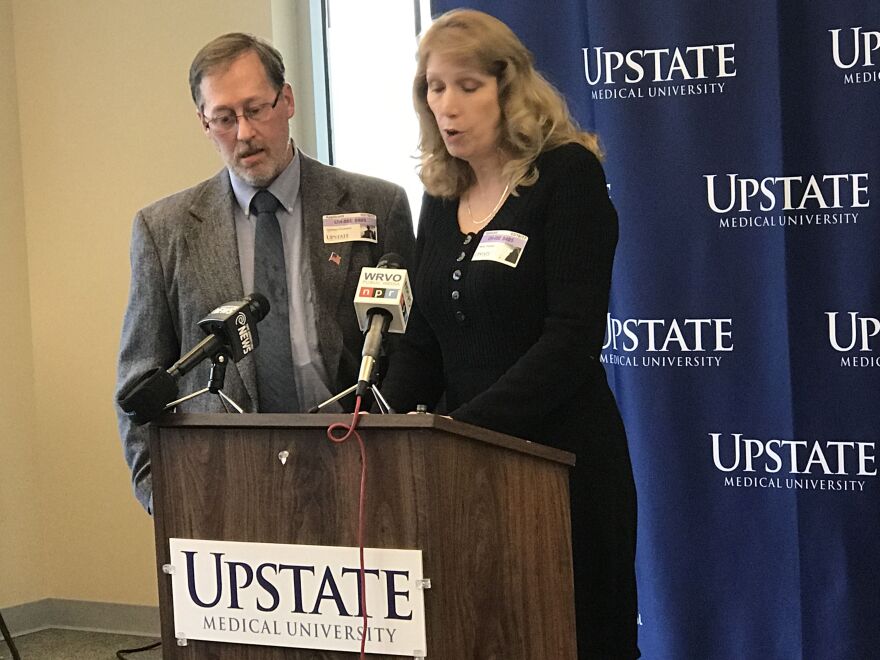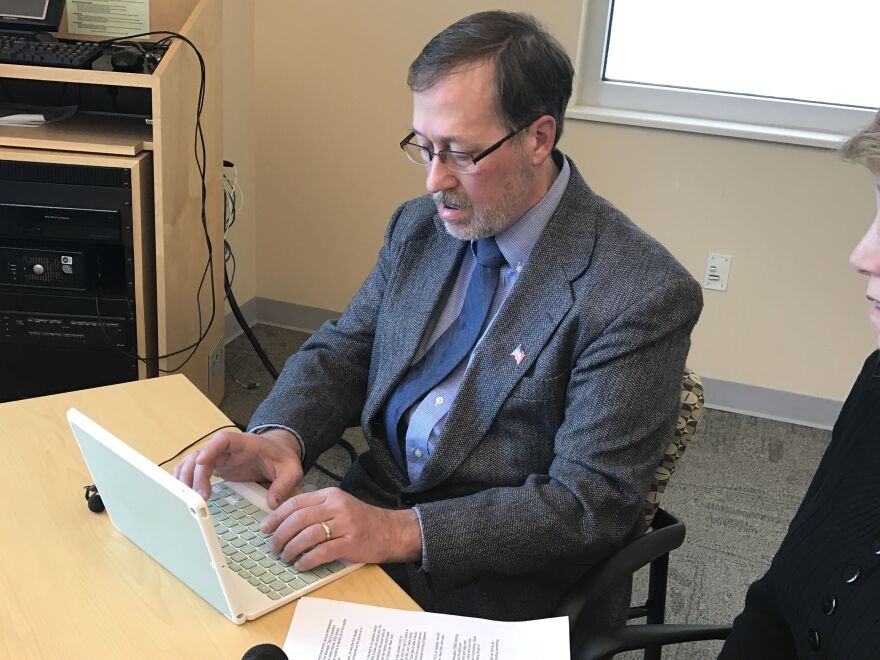Researchers at SUNY Upstate Medical University continue to work on ways to better diagnose, and treat, ALS, a deadly neurodegenerative disease that affects the nerve cells of the brain and spinal cord.
Upstate ALS Research and Treatment Center Director Eufrosina Young says studies center on something called transcranial magnetic stimulation. It helps doctors connect what’s happening in the brain with what’s happening in other parts of the body, in a disease that can often be difficult to diagnose and treat.
"This allows our scientists to determine progression of disease as well as drugs that may have a positive effect in terms of slowing down progression of disease, if not a cure,” said Young,
A cure is what one central New York family is hoping for. Bill and Nancy Prichard live in Chadwicks, south of Utica. Bill was diagnosed with ALS five years ago and is now a volunteer in the study. The disease has taken away his ability to speak, so he communicates through an iPad.

"I hope it helps them out,” he said through his tablet.
The Syracuse center also has developed a multidiciplinary approach to dealing with ALS for families, which means there is a one-stop shop that provides different kinds of medical attention during one visit.
That’s something Prichard’s wife Nancy appreciates. She says living with a disease like ALS means waking up every day, not knowing what it will bring.
“As he couldn’t swallow, then we knew we had to do the feeding tube. As his arms and legs go out, we know we’ll need the wheel chair. But you never give up. And you do enjoy every day. Even day you do something you like. And everybody says that, but nobody does it," she said.
The Upstate program recently won recertification as a Treatment Center of Excellence, and won a $50,000 grant to support the hospital’s ALS clinic.








